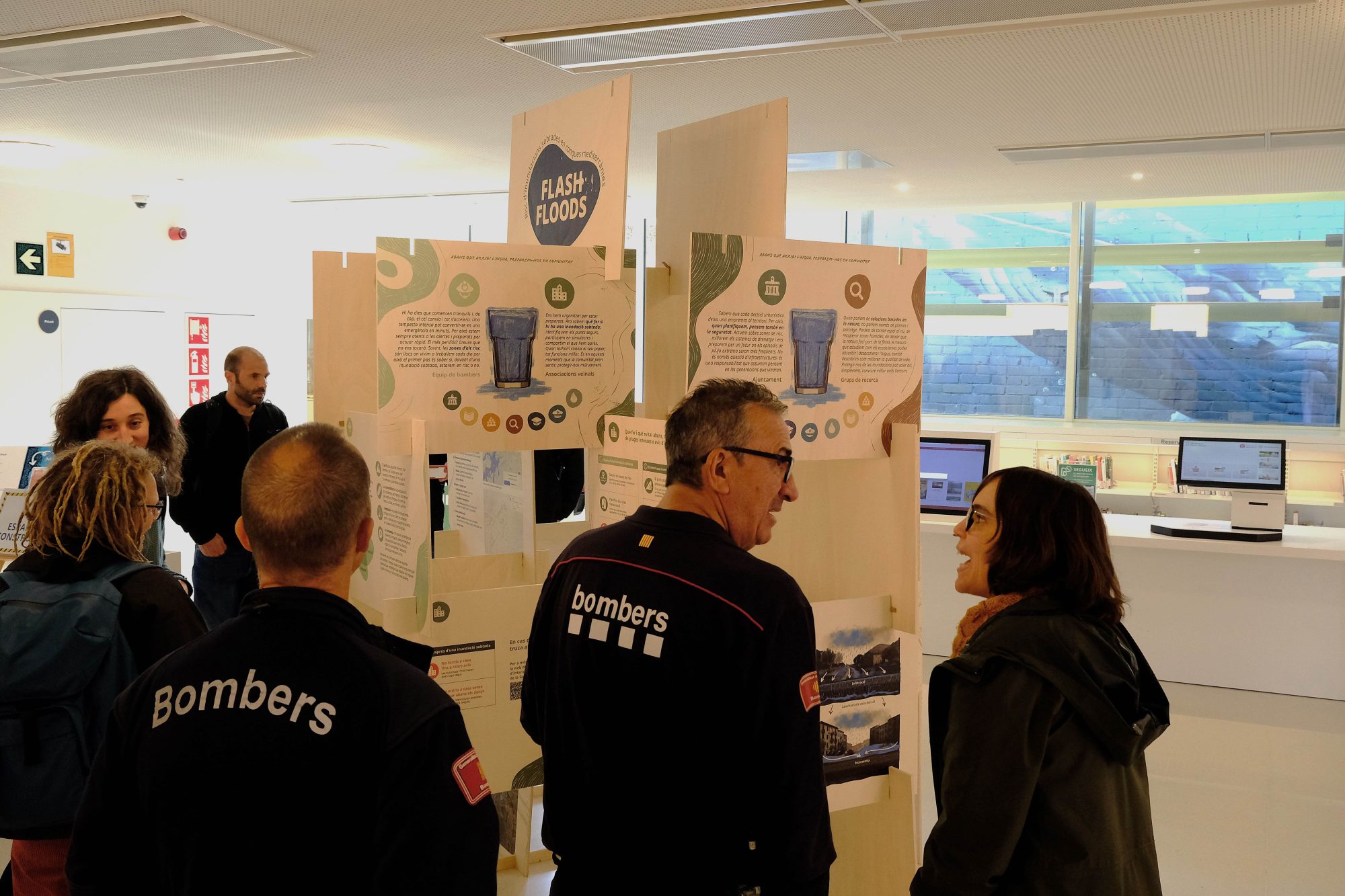The LocAll4Flood project is organizing its third training session, focusing on Nature-Based Solutions to address flash floods

In recent times, the effects of climate change in the Mediterranean have intensified, a clear example being flash floods that occur when very intense rainfall happens in a short period. Streams with little or no flow become overloaded in a matter of hours, and the water ends up submerging normally dry areas, as happened in the Valencian Community a year ago. To combat these types of events, the LocAll4Flood project, led by the BETA Technology Center of the University of Vic – Central University of Catalonia (UVic-UCC), has set itself the objective of deepening the prevention, adaptation, and mitigation of the risk of flash floods.
To generate knowledge about flash flood prevention, one of the main elements of the LocAll4Flood project is the training sessions held in various locations around the Mediterranean where pilot projects are underway, including France, Malta, Bulgaria, Italy, Greece, and Spain. These sessions, which bring together diverse stakeholders such as local authorities, researchers, professionals, and members of civil society, recently concluded with the third session for the pilot project in Vic and Gurb. This session took place today, Friday, November 7th, at the Pilarín Bayés Library in Vic. This third session focused on mitigation strategies and defining practical responses based on Nature-Based Solutions (NBS) to combat the risks of flash floods.
Participants were introduced to the technical study developed within the project framework on potential Nature-Based Solutions (NBS) that could be implemented in the Vic and Gurb area to mitigate the risks associated with river flooding. Based on this study, the opportunities and barriers associated with its implementation at the local level were discussed. Other NBS that could reduce the risks associated with pluvial flooding in the area were also explored. This provided an opportunity to learn from technical experts, contribute ideas, share local knowledge, and strengthen the network of stakeholders committed to a safer and more resilient Mediterranean.
The two previous sessions included representatives from the Catalan Water Agency (ACA), the Vic City Council, the Gurb City Council, the Urban Guard, the Fire Department, Forest Rangers, Civil Protection of the Generalitat of Catalonia and the Osona County Council, the Center for Mediterranean River Studies (CERM), Civil Protection Volunteers from Vic and other experts.
Previous training sessions
The first training session of the LocAll4Flood project held in March 2025, focused on prevention. It included a presentation of the project, the principles of flood risk management, the European Union (EU) Floods Directive, and the Early Warning System (EWS) promoted by the project. It brought together emergency services, technical experts, and local authorities who mapped vulnerable areas and identified priority measures for flood risk reduction. The session emphasized the need to invest in efficient early warning systems and to foster a more unified governance approach.
The second session held in June 2025, the session focused on raising awareness and mapping stakeholder relationships. It also included sharing the results of public surveys on flood risk perception among residents and workers in areas identified as high-risk for flooding in Vic and Gurb. This session strengthened synergies between public authorities, academia, civil society, and the private sector, paving the way for coordinated action. The session also addressed the dissemination of educational materials to various target audiences.
Throughout the sessions, interactive activities facilitated the exchange of ideas and the identification of effective solutions, leading to significant progress toward the development of more comprehensive and coordinated flood risk management strategies. Some sessions also included presentations of locally implemented flood models (both pluvial and fluvial) that provided valuable insights into site-specific challenges and solutions.
The partners involved in the LocAll4Flood project are Euroregion Pyrenees Mediterranean (France/Spain), GLOWATER – University of the Balearic Islands (Spain), Energy and Water Agency (Malta), Black Sea – Danube Association for Research and Development (Bulgaria), National Research Council (Italy), Hydrometeorological Innovative Solutions – HYDS (Spain), Aristotle University of Thessaloniki (Greece), and CT BETA of UVic-UCC, as project coordinator. Each of these partners brings diverse but complementary expertise, ensuring a collaborative approach.
